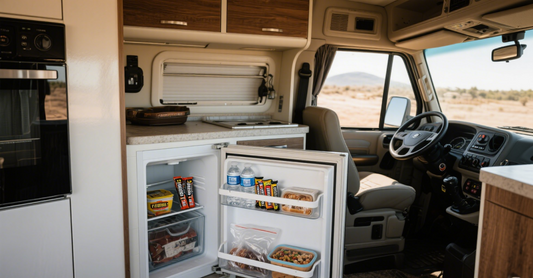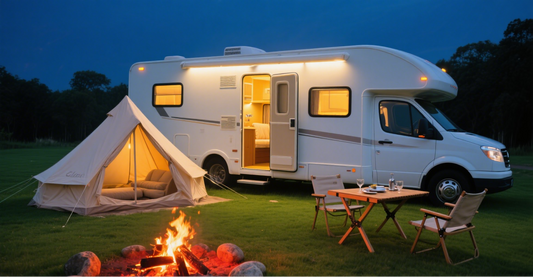How to Choose the Right Battery for Your Club Car Golf Cart Model
Many Club Car golf cart owners are often confused when it comes to choosing a battery, unsure of which battery is best for their model. In this guide, we will discuss the battery requirements for specific models and help you purchase the best Club Car golf cart battery to ensure that your golf cart can provide reliable range and power whether it is for golf, commuting or daily use.


Why Club Car Golf Carts Excel and How Battery Choice Enhances Performance
Club Car has been a leader in the golf cart industry since 1958, known for its innovative engineering, durability, and versatility. The brand's Excel drive system provides smooth acceleration and precise handling, while the rust-proof aluminum frame ensures long-lasting durability even in wet or coastal environments.
Models such as the DS, Onward, and Carryall are favored by many owners for their reliability on the golf course and also offer customizable personal transportation options. Club Car accounted for 32% of the market share with its low maintenance costs and high resale value (data source: Golf Cart Market).
Club Car is committed to sustainability and has launched efficient electric golf cart models, attracting many environmentally conscious users. However, choosing the right Club Car golf cart battery can enhance these advantages for you, ensuring that your golf cart can perform at its best during an 18-hole game or daily commute.
Understanding Club Car Golf Cart Battery Systems
The battery system is the heart of your electric Club Car golf cart, powering the motor and accessories like lights, GPS, or audio systems. The following information and related matters are what you must know.
- Voltage: Club Car models typically use 36V or 48V systems. Voltage determines motor power, with 48V systems providing higher torque for demanding tasks like climbing hills or carrying multiple passengers. For example, a 48V Precedent model can handle steeper inclines than a 36V DS.
- Capacity (Amp-Hours, Ah): Capacity is a measure of how long a battery can provide power. A 36V 100Ah lithium battery might offer 30-40 miles of range for a Precedent on flat terrain, while a 50Ah lead-acid battery provides 15-25 miles under similar conditions.
- Battery Management System (BMS): Lithium batteries include a BMS to balance cell voltages, prevent overcharging, detect faults (e.g., short circuits), and regulate temperature. For instance, a BMS can shut down the battery if it exceeds 140°F (72°C), protecting both the battery and your Club Car cart.
- Charger Compatibility: A charger matched to your battery type (lithium or lead-acid) is critical. Lithium chargers use precise voltage regulation to optimize charging and extend lifespan, while mismatched chargers can damage batteries.
- Usage and Environmental Factors: Driving habits (e.g., frequent stops, heavy loads) and conditions (e.g., cold weather reducing lead-acid efficiency by up to 20%) impact performance. For example, a fully loaded Onward carrying four passengers and golf bags requires a higher-capacity battery.
Understanding these elements helps you choose a battery that aligns with your cart's electrical demands and usage patterns, ensure reliable performance from your Club Car golf cart.


Battery Requirements for Popular Club Car Golf Cart Models
Each Club Car model has specific battery requirements to deliver optimal power and efficiency. Here is a breakdown of some of the most popular Club Car models.
- DS Model: Older DS models (pre-2000) typically use six 6V lead-acid batteries connected in series for a 36V system, while newer ones use four 12V batteries for a 48V system. Lithium upgrades often involve a single 36V or 48V pack, but older models may require adapter kits for wiring compatibility.
- Precedent Model: Standardized at 48V, using four 12V lead-acid batteries or a single 48V lithium battery. Designed for golf courses and light utility, it benefits from 80-120Ah lithium batteries for extended range.
- Onward Model: Requires a 48V system to support advanced features like customizable bodies, premium seating, and enhanced suspension. A 100-120Ah lithium battery is perfect for community transport or resort use.
- Tempo Model: Uses a 48V system optimized for long-range efficiency, suitable for large properties or frequent use. An 80-120Ah lithium battery maximizes performance.
In order to help you better understand the battery requirements for different Club Car models, the following table data is organized for you to see more clearly and intuitively.
| Model | Voltage | Battery Configuration | Recommended Lithium Capacity (Ah) | Use |
|---|---|---|---|---|
| DS | 36V/48V | 6x6V or 4x12V or 36V | 50-100Ah | Golf or light utility |
| Precedent | 48V | 4 x 12V or 48V | 80-120Ah | Golf courses, light commuting |
| Onward | 48V | 4 x 12V or 48V | 80-120Ah | Community transport, resorts |
| Tempo | 48V | 4 x 12V or 48V | 80-120Ah | Long-range, frequent use |
For older DS models, upgrading to lithium may require professional installation due to wiring differences. Always consult your owner's manual or a technician to confirm specifications before purchasing a Club Car golf cart battery.
If you do not have the expertise, always hire a licensed professional to assist you with the installation to ensure stable performance of the battery and golf cart and avoid damage. For further knowledge on professional installation, you can continue reading: How To Install a 36V or 48V Lithium Battery In Your Golf Cart
Lithium vs. Lead-Acid Batteries for Club Car Golf Carts
Once you have a good idea of your Club Car golf cart, buying lithium or lead-acid batteries is important for the long-term use of your cart. Although lithium batteries have a higher initial cost, their long cycle life and low long-term maintenance and replacement costs make them best for your Club Car golf cart.
In addition, you can compare by the following aspects:
- Weight and Efficiency: Lithium batteries are 50-60% lighter (e.g., 60 lbs for a 48V lithium pack vs. 240 lbs for lead-acid), reducing motor strain and improving energy efficiency by up to 15%. This enhances handling and extends motor life.
- Performance: Lithium batteries maintain consistent voltage, delivering steady acceleration (e.g., 0-15 mph in 5 seconds for a Precedent) and reliable power on inclines. Lead-acid batteries lose voltage as they discharge, slowing performance (e.g., 0-15 mph in 7 seconds). Lithium offers 30-40 miles per charge for a Precedent, vs. 15-25 miles for lead-acid.
- Lifespan: Lithium batteries last 3,000-5,000 cycles (5-10 years at 100-200 cycles/year, e.g., weekly golf rounds or daily short trips), while lead-acid lasts 500-1,000 cycles (3-5 years). This reduces replacement frequency.
- Maintenance: Lead-acid batteries require monthly water checks, terminal cleaning, and equalization charging to prevent sulfation, which can take 1-2 hours monthly. Lithium batteries are maintenance-free, saving time and effort.
- Charging Speed: Lithium batteries charge in 4-6 hours with a compatible charger, vs. 8-12 hours for lead-acid, minimizing downtime for frequent users.
- Temperature Resilience: Lithium batteries operate efficiently from 0°F to 140°F, while lead-acid loses up to 20% capacity below 32°F, impacting winter performance.
The following is an estimated cost calculation for 5 years assuming 100 cycles per year to help you make an informed purchasing decision:
| Battery Type | Upfront Cost | Replacement Frequency | Maintenance Costs | Total 5-Year Cost |
|---|---|---|---|---|
| Lead-Acid | $400-$600 | Every 2-3 years | $50-$100/year | $700-$1,100 |
| Lithium | $800-$2,000 | Every 5-10 years | $0 | $800-$2,000 |
Benefits of Upgrading to a Lithium Battery for Your Club Car
- Extended Range: Lithium batteries provide 30-40 miles per charge for a Precedent、DS and Onward carts on flat terrain, ideal for 18-hole golf rounds or community commuting, compared to 15-25 miles for lead-acid.
- Superior Power Delivery: Consistent voltage ensures reliable acceleration and hill-climbing, enhancing performance on golf courses or hilly properties. For example, a lithium-powered Onward and Tempo can maintain speed with four passengers.
- Long-Term Savings: Lithium's 5-10-year lifespan (at 100-200 cycles/year) eliminates frequent replacements, saving $600-$1,200 over a decade compared to lead-acid, which requires replacement every 2-3 years.
- Eco-Friendly Design: Lithium batteries use 15% less energy per charge and lack toxic materials like lead or acid, reducing environmental impact. Recycling programs further minimize waste.
- Lightweight Advantage: A 50-60% weight reduction improves cart efficiency, extends motor life, and allows for heavier payloads, such as golf bags or equipment.
- Convenience: Maintenance-free operation simplifies ownership, especially for casual users or those new to golf carts, eliminating tasks like watering or cleaning terminals.
How to Choose the Best Club Car Golf Cart Lithium Battery
In addition to considering the budget cost, you also need to comprehensively evaluate the following factors when choosing the best Club Car golf cart lithium battery.
- Verify Voltage and Capacity: Ensure the battery matches your Club Car cart's 36V or 48V system. For frequent users (e.g., daily golf rounds or resort use), choose 100-120Ah for extended range, for casual use (e.g., weekly rounds), 50-80Ah suffices.
- Check Physical Compatibility: Confirm the battery fits your cart's compartment. Lithium packs are 10-20% smaller than lead-acid setups (e.g., four 12V batteries), but measure dimensions or consult your supplier.
- Choose a Trusted Brand: Opt for manufacturers like Temgo Battery, offering UL-certified lithium batteries with advanced BMS for safety, durability, and performance. Certifications ensure compliance with industry standards.
- Assess Charger Needs: Lithium batteries require specific chargers ($100-$300) for precise voltage regulation. Check if your existing charger is compatible or budget for a new one. You can also purchase golf cart battery kits directly from Temgo
- Evaluate Warranty and Support: Look for provide warranties and responsive customer service. Temgo Battery provides comprehensive support, including installation guidance for Club Car models. (e.g., DS, Precedent, Onward and Tempo)
- Balance Budget and Needs: Lithium batteries cost $800-$2,000 upfront but save more money long-term.
Read more: How to Choose the Best Golf Cart Battery for Your Club Car
Power Your Club Car with Temgo Battery
Ready to elevate your Club Car golf cart performance? Temgo Battery offers premium, UL-certified lithium batteries tailored for DS, Precedent, Onward, and Tempo models. With 100-105Ah capacities option for extended range, advanced BMS for safety, and a warranty service, Temgo Battery ensures reliability and peace of mind. Visit Temgo Battery's 36V or 48V product page to explore our Club Car-compatible lithium batteries and upgrade your driving experience today.


